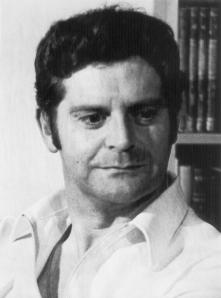 I was actually present at the premiere of this oboe concerto (including the afternoon rehearsals), written for the oboist Geoffrey Bridge and the Havant Chamber Orchestra, commissioned by the orchestra’s then conductor, Peter Craddock. The date (I can now discover) was 16 June 1979, a Saturday. I knew of Michael Hurd (1928-2006) from my school days because we had performed his “pop cantata” Jonah Man Jazz – the popularity of which did some harm to his reputation as a “serious” composer. (I remember some excitement at school about the jazz chords used in the piece, probably the first time I had taken notice of jazz harmony). But Hurd had studied with Lennox Berkeley and wrote a number of more substantial vocal works (including a choral symphony Shepherd’s Calendar in 1975, recorded on Dutton), and a handful of orchestral works, most of them now also recorded. Hurd was also a prolific author, but in 1979 I wasn’t yet aware of his book The Ordeal of Ivor Gurney, which had been published the year before. He also wrote a full scale biography of Rutland Boughton.
I was actually present at the premiere of this oboe concerto (including the afternoon rehearsals), written for the oboist Geoffrey Bridge and the Havant Chamber Orchestra, commissioned by the orchestra’s then conductor, Peter Craddock. The date (I can now discover) was 16 June 1979, a Saturday. I knew of Michael Hurd (1928-2006) from my school days because we had performed his “pop cantata” Jonah Man Jazz – the popularity of which did some harm to his reputation as a “serious” composer. (I remember some excitement at school about the jazz chords used in the piece, probably the first time I had taken notice of jazz harmony). But Hurd had studied with Lennox Berkeley and wrote a number of more substantial vocal works (including a choral symphony Shepherd’s Calendar in 1975, recorded on Dutton), and a handful of orchestral works, most of them now also recorded. Hurd was also a prolific author, but in 1979 I wasn’t yet aware of his book The Ordeal of Ivor Gurney, which had been published the year before. He also wrote a full scale biography of Rutland Boughton.
The Concerto da Camera (also performed in a version for oboe and piano) is a light, melodic piece written as a tribute to Francis Poulenc, but also perhaps drawing comparisons with Faure and Malcolm Arnold – particularly the pastoral middle movement with its rich string accompaniment. The three main themes are all derived from two basic cells of notes heard in the first movement. The concerto has had a number of performances in Hampshire, where Hurd settled in the early 1960s, making his living as a freelance musician and author. It was eventually recorded in 2001 on an ASV disk, English Oboe Concertos, alongside works by William Blezard, John Gardner, Philip Lane and Kenneth Leighton. There’s a short extract from the disk here.

[…] but the resultant shell-shock blighted the rest of his life, which ended in an asylum. The composer Michael Hurd has written on this period, and the accompanist and Schubert scholar Graham Johnson has suggested […]